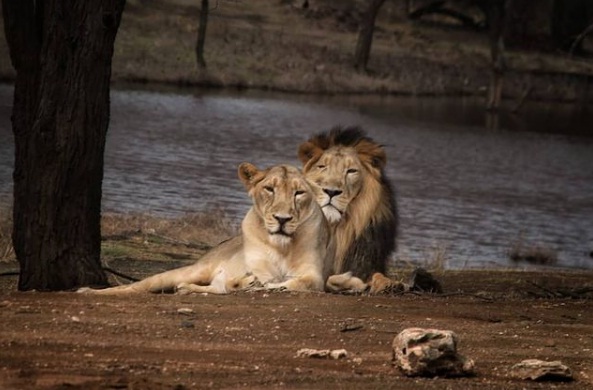United Kingdom
The history of the United Kingdom is a complex and extensive narrative that spans thousands of years. Here is a condensed version of the history of the United Kingdom:
Ancient Britain :
The earliest known human settlements in the British Isles date back to the Stone Age. Various Celtic tribes inhabited the region, and the Romans invaded Britain in 43 CE, establishing the province of Britannia.
Anglo-Saxon and Viking Periods :
After the fall of the Roman Empire, Germanic tribes, such as the Angles, Saxons, and Jutes, migrated to Britain. Viking invasions from Scandinavia occurred in the 9th and 10th centuries, leading to a period of political fragmentation.
Norman Conquest :
In 1066, William the Conqueror, Duke of Normandy, successfully invaded England and established Norman rule. This event, known as the Norman Conquest, had a profound impact on English language, law, and culture.
Plantagenet and Tudor Dynasties :
The Plantagenet dynasty ruled England from the 12th to the 15th centuries. The Tudor dynasty followed, with notable monarchs such as Henry VIII and Elizabeth I. The Tudor period saw significant religious and political changes, including the establishment of the Church of England.
British Empire :
From the 16th to the early 20th centuries, Britain embarked on a period of colonial expansion and established the British Empire. Through exploration, conquest, and trade, the empire expanded across the globe, covering territories in North America, the Caribbean, Africa, Asia, and the Pacific.
Industrial Revolution :
The 18th and 19th centuries marked the Industrial Revolution, a period of significant technological advancements and economic transformation in Britain. Industrialization brought major changes to agriculture, manufacturing, and transportation, propelling the country into a global powerhouse.
World Wars and Post-War Era :
Britain played a pivotal role in both World War I and World War II. The wars had a profound impact on the country, causing immense loss of life and leading to significant social and political changes. After World War II, the United Kingdom underwent a process of decolonization, granting independence to many of its former colonies.
European Union and Modern Era :
In 1973, the United Kingdom joined the European Economic Community, which later became the European Union (EU). However, in 2016, a referendum was held, and the majority of UK voters supported leaving the EU. As a result, the UK officially left the EU on January 31, 2020, in a process known as Brexit.
Today, the United Kingdom is a constitutional monarchy comprising four constituent countries: England, Scotland, Wales, and Northern Ireland. It is a highly developed nation with a rich cultural heritage, parliamentary democracy, and a global influence in areas such as politics, economics, literature, and science.
-: Attractions in the United Kingdom :-
Stonehenge (England): Marvel at the ancient stone circle of Stonehenge, a UNESCO World Heritage Site and one of the world's most famous prehistoric monuments.
Tower of London (England): Explore the historic Tower of London, a fortress and palace that houses the Crown Jewels and has served as a royal residence, prison, and treasury.
Edinburgh Castle (Scotland): Visit Edinburgh Castle, a majestic fortress that dominates the city's skyline, offering panoramic views and housing Scotland's crown jewels.
Giant's Causeway (Northern Ireland): Witness the unique geological formations of the Giant's Causeway, with thousands of interlocking basalt columns that create a stunning natural spectacle.
Snowdonia National Park (Wales): Discover the breathtaking landscapes of Snowdonia National Park, with its rugged mountains, deep valleys, and picturesque lakes.
Buckingham Palace (England): Witness the Changing of the Guard ceremony outside Buckingham Palace, the official residence of the British monarch, and explore its magnificent State Rooms during the summer months.
Windsor Castle (England): Visit Windsor Castle, the oldest and largest inhabited castle in the world, and explore its stunning grounds, royal apartments, and St. George's Chapel.
Lake District National Park (England): Immerse yourself in the picturesque beauty of the Lake District, renowned for its serene lakes, charming villages, and stunning mountain scenery.
Roman Baths (England): Step back in time at the Roman Baths in Bath, a remarkably preserved bathing complex from ancient Roman times.
National Museum of Scotland (Scotland): Explore the diverse exhibits of the National Museum of Scotland in Edinburgh, showcasing the country's history, art, culture, and natural sciences.
St. Paul's Cathedral (England): Admire the grandeur of St. Paul's Cathedral in London, an architectural masterpiece and a symbol of the city.
Titanic Belfast (Northern Ireland): Learn about the ill-fated Titanic at Titanic Belfast, an interactive museum that tells the story of the famous ship's construction and tragic sinking.
These attractions represent just a fraction of what the United Kingdom has to offer. The country is brimming with historical sites, stunning landscapes, world-class museums, vibrant cities, and a rich tapestry of cultural experiences that cater to a wide range of interests and preferences.
-: Fact about the United Kingdom :-
The United Kingdom is home to the oldest known monarchy in the world. The British monarchy can be traced back over a thousand years, with the current royal family being the House of Windsor. The monarchy has played a significant role in shaping the country's history, culture, and traditions. Despite being a constitutional monarchy with limited powers, the British monarchy remains an iconic symbol of national identity and attracts considerable public interest and international fascination. The reigning monarch, Queen Elizabeth II, ascended to the throne in 1952, making her the longest-reigning monarch in British history. The monarchy is steeped in tradition and ceremonies, such as the Changing of the Guard at Buckingham Palace and the State Opening of Parliament, which continue to captivate visitors and locals alike.





0 Comments